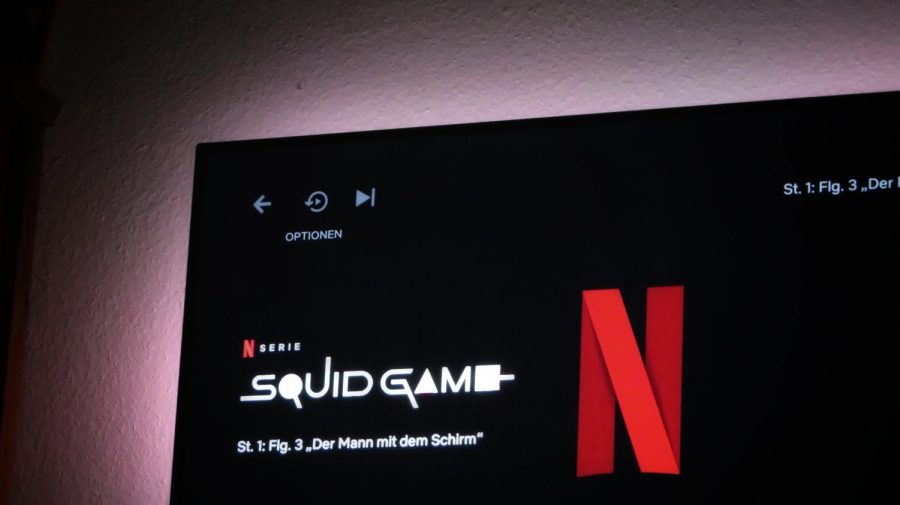The Chilling Reality of Squid Game
October 12, 2021
Netflix’s new show, Squid Game, is a global phenomenon. The Korean horror drama series is about financially troubled grown-ups playing traditional Korean children’s games on a faraway island. While the losers die, a single winner gets a cash prize of about $40 million — suppose Red Light, Green Light, or tug of war, but with a lot more blood.
It debuted on September 17 and became an instant sensation, reaching the top of Netflix’s most-watched releases. People have also gone into hysteria over this show, generating memes across all social media platforms. After just three weeks since it aired, Squid Game has not only become the most popular Korean drama in Netflix history, but it’s well on its way to overtaking Bridgerton as the most popular series in all of Netflix history.
The story revolves directly around the main character, Seong Gihun. Gihun is a single father who worked in a manufactory for years, was fired, tried to open his own business, failed, and now lives with his senior mother while he works as a driver. When we first meet him, he steals the little money his mom earns working at a market and gets hopelessly into debt by gambling it all away.
Gihun’s despair makes him the victim of a mysterious institute that gives him the chance to win a life-changing amount of cash, by playing a series of games with a group of 455 other people, but with consequences. As the series progresses through its nine episodes, his desire to win the game allows him to shake off his discomfort, though he also struggles to maintain his humanity despite the game’s dehumanizing effects.
Although this show is fully fiction, it truly does give you a different perspective on morals. Squid Game accurately maps the pitfalls of today’s capitalist economy. It demonstrates how people can slip all morals and risk dying to make life-changing money. One of the plot’s most unexpected twists comes early, in the second episode, when the group votes to leave the game and go home. It’s an understandable response to the horror of the first game ending in mass murder. However, once the prize money is revealed, many people decide that they don’t want to leave.
Money, it seems, is that the only mind-altering substance that would make these people suffer such violence. After a close vote, the majority voted to stop the game. The players return to their everyday life reminding them of a life drowned in debt. At least participating in the games offers a real chance to get rich; ordinary life only promises hard jobs, debt, and more debt.
As a result, most of the players return to the dystopian playground, a deadly pink and blue gymnasium where the guards are faceless, without personality, and presumably soulless. This is all for the entertainment of a small group of billionaires who are numb, who see poverty as an opportunity and human misery as amusement. Once players agree to the terms of the game, they change. Bloody disloyalty turns into business; morals have no meaning or value when everyone’s life is at stake and only one can get out alive. Love and friendship simply can not survive during this atmosphere because the motivations change from day to day; tug of war rewards teamwork, while a game of marbles harshly punishes players for taking care of each other. Each relation becomes a calculation, each life saved an investment, and each slaughter a victory.
“I wanted to write a story that was an allegory or fable about modern capitalist society, something that depicts an extreme competition, somewhat like the extreme competition of life. This is a story about losers, those that go through the challenges of life and are left behind, while the” winners level up”. said the director Hwang Dong-hyuk, during an interview with CNN. This show was made to show us the truth about money, by distracting us with children’s games and death. It definitely changes your perspective on life and should be a show you consider watching!














































